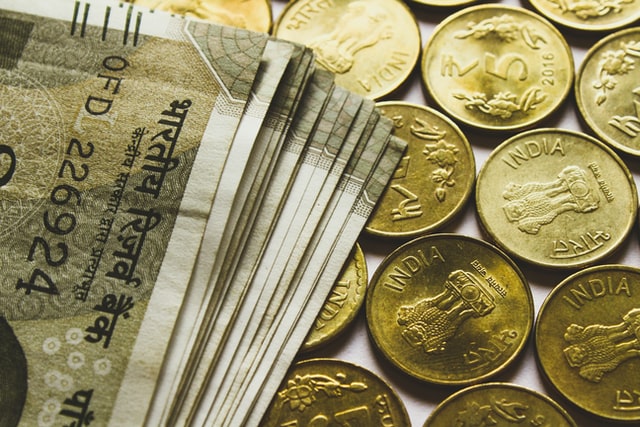September 15, 2021
either/view ⚖️
How much is enough?
To: either/view subscribers
Good morning. Do you love watching horror movies? If yes, you can earn ₹95,000 in just 10 days. You read that right.
A finance company called ‘FinanceBuzz’ is offering to pay an individual $1300 to watch 13 of the scariest movies within 10 days. While watching the movie, your pulse rate will be monitored using a FitBit, which the company will later use for research. So, if you are in the United States and aged above 18, go apply for the role of ‘Horror Movie Heart Rate Analyst’ and make your dream of earning money from watching films come true.

📰 FEATURE STORY
Will the increased Minimum Support Prices be beneficial for farmers?

We all buy vegetables, paddy and millets cultivated by our farmers. Sometimes, the farmers may not get sufficient revenue due to price fluctuations. They will then suffer losses. To avoid such situations, the government fixes a minimum support price (MSP) for the goods twice a year.
Last week, PM Narendra Modi announced an increased MSP for certain crops. By doing so, the government hopes that the farmers will get maximum remuneration. However, farmers are not happy with the increase.
Context
Just like the name suggests, MSP is the minimum amount that the government guarantees the farmer. So even if there is a disruption in the market, the farmer will be assured money equivalent to the MSP. This way, we can look at the MSP as a safety net for farmers. The government purchases crops from the farmers at a relatively reasonable price so that the farmers stand protected from heavy losses.
To fix the amount for the MSP, the government consults with the Commission for Agricultural Costs and Prices (CACP). CACP makes a list of recommendations on how to price the crops. It uses a set of pre-fixed formulae that includes details like the cost of production, labour cost, etc. After making careful calculations, the CACP suggests the minimum support prices to the Centre. The Centre then analyses the demand-supply situation of the country and takes a call on how much the MSP will be for each crop.
For the past ten years, the MSP for both rabi and kharif crops have been declining. What we need to know is that MSP is not a legally guaranteed system. It has been the government’s initiative to help farmers. However, with the new farm reform laws, farmers have been worried that the MSP will be abolished. This has resulted in farmers coming together and staging protests continuously. But now the Centre has increased the MSP for rabi crops. Alas, farmers and experts are dissatisfied with the new rates.
Hike in MSP will be very beneficial
The government’s decision to hike the MSP has definitely shut down worries about abolishing the practice. Ever since the reform laws were passed, there has been a steady increase in MSP. The government has also been procuring more crops from farmers. This is a very positive sign in the agriculture sector.
Now, an increase in MSP is surely in the interest of farmers. It shows how the government is attentive to the woes of the farmers and works to improve their livelihood. In fact, this hike has come at the right time. Farmers are about to begin sowing seeds for the rabi season in October. Now with the government’s announcement to increase MSP, they can rest assured that this year’s produce will bring them better returns.
Agriculture Minister Narendra Singh Tomar clarified that the new MSPs for crops have been fixed at 1.5 times higher than the cost of production. This would be very helpful to increase the farmers’ income. Take for instance the MSP for wheat. Last year, farmers were given only ₹1,975 per quintal. From the upcoming rabi season, they will be assured ₹2,015 for the same quantity. At the end of the day, the farmers will benefit from the hike.
While the MSP for wheat has seen a small increase, oilseeds and pulses will be guaranteed a higher MSP. The hike for crops like mustard, masoor dal and safflower are nearly 8%. This is a well-thought move by the government to encourage farmers to diversify their crops. Most of the farmers grow wheat and paddy. But there is an increase in demand for oilseeds and pulses. So encouraging farmers to grow more of these crops would solve the imbalance in demand-supply.
A farmer’s union has also revealed that pulses require less water and low labour costs. And since the MSP has also increased, farmers would reap huge profits this year. Overall, the government has promised 100% returns over production cost in case of wheat, mustard and rapeseed. The expected returns for other crops has also increased hope for a more profitable farming season.
The new MSPs are not very promising
While the idea to diversify seems interesting, it has not been received well by the farmers. Wheat is a staple crop and there’s constant demand for it. Many farmers are thus involved in growing wheat crops. But the new MSP has only increased ₹40 per quintal of wheat, as compared to last year. That is a very marginal increase and is far below the expectation of farmers.
Statistically, this rise in MSP of wheat is deemed the lowest in 12 years. Think about what would happen to farmers in Punjab, which is the Wheat Bowl of India. They are most likely to receive lesser benefits from this policy. It would be unfair to all wheat farmers, not only in Punjab but across the country.
Even if we were to consider that the government has increased the MSP of other crops, the prices are not satisfactory. All the crops have received a hike of less than 10%. This small increase is not on par with the tremendously high cost of production. The prices of fertilizers, pesticides and other products have increased. So, only if there is a parallel increase in MSP, will the farmers benefit from the proposed hike.
Since this increased MSP is for the upcoming sowing season, the rates will only be valid in the 2022-23 marketing season. But as we saw, farmers are dismayed that the rates do not match the production cost currently. Therefore, on the surface level, they will get higher rates, but in reality, it will still be lower than what they should receive. A quick math by farmers shows that the MSP of wheat for this year (2021-22) should have been ₹2,195.5 per quintal. But as per the new MSP, farmers will receive only ₹2,015 per quintal in the next year. Thereby, it is not just a ₹180 loss for them. It will be much more because an entire year will go by.
Clearly, this loss is not addressed by the government. Why? Because the government used a different formula to calculate the MSP. Experts claim that the government has taken into consideration various unimportant factors such as the rate of wheat in the international market to arrive at the cost of production of a crop. Critics argue that these details should not determine the MSP. What should matter is the rental value of owned land, lease rent, etc. But none of this has been analysed to calculate the MSP. Moreover, farmers’ unions suggest that the new MSPs do not make much difference to their existing rates. So, they say it’s a mere number game.
🕵️ BEYOND ECHO CHAMBERS
For the Right:
Hey Ram, take care of rural health!
For the Left:
Time to emulate the new Jawaharlal Nehru University
🏴 STATE OF THE STATES
Full term curse (Gujarat) – We all know that Bhupendra Patel took over as the 17th Chief Minister in Gujarat. But what we may not know is that out of the earlier 16 CMs, 14 CMs have resigned without completing their full term. The last to join the list was Vijay Rupani when he quit the post on Saturday. Only Madavsinh Solanki and Narendra Modi could complete their full term of five years. Two others, Hitendra Kanaiyalal Desai and Vijay Rupani, got to complete five years but over two different terms. The state had also been under the spell of Presidential rule five times. That’s a brief political history for you.

No NEET (Tamil Nadu) – The National Eligibility cum Entrance Test (NEET) for medical admissions in the state has been debated for a long time. In a recent development, the TN Assembly has passed the Tamil Nadu Admission to Undergraduate Medical Degree Courses Bill. This bill seeks to stop medical admissions through NEET. Now, all such admissions will be done based on Class 12 marks. This bill was passed in the wake of another suicidal death of a 19-year-old medical aspirant. The state government also has compelling data and studies that back the passing of the bill. While the bill awaits Presidential assent, NEET will remain for this year’s admissions.
New developments (Tripura) – The growth of each state depends on the rapid development of the region. So, the Tripura government has planned various projects to develop Sabroom, the state’s southernmost town. The CM recently inaugurated a new additional hospital building, which has increased the capacity to 100 beds. There are other development plans like Special Economic Zone (SEZ), an Integrated Check Post and a logistics hub. Other than these, a project worth Rs.80 crores is also underway to develop the border township. With a focus on quality healthcare services, 256 doctors have been recruited. Additionally, the foundation stone for an oxygen plant is laid. Several beneficiaries were also provided sewing machines, bicycles, wheelchairs and Ayushman Bharat cards. It looks like the Tripura government is striving hard to create a better tomorrow.
Buzzing government schools (Delhi) – It is more than a week since schools reopened in Delhi. While students are happy going back to school, the fear of Covid19 still looms over the parents. So, how has the turnout been? The government schools are seeing a high attendance rate with an average of 70-80%. However, private schools recorded only 10% turnout. The private institutions claim that fear of the third wave, commuting issues and hybrid learning options are the reasons for the poor turnout. Well, online or offline, education should always be a priority.
A row of resignations (West Bengal) – Yesterday, West Bengal Advocate General Kishore Datta resigned from his post citing personal reasons. It was accepted with immediate effect. While his resignation is a major shocker, there is something more puzzling. Datta is the fourth advocate general of the state to resign during the regime of Mamata Banerjee. Anindya Mitra, Bimal Chatterjee and Jayanta Mitra had also resigned from this post earlier. The row of resignations has now raised questions. What do you think might be the reason for such resignations?
🔢 KEY NUMBER
₹15,721 crore – Amount sanctioned to 11 states for additional open market borrowing. The Finance Ministry has granted permission to 11 states to borrow more after they have met their capital expenditure targets for the first quarter of FY 21-22. These states are Andhra Pradesh, Uttarakhand, Bihar, Haryana, Kerala, Chhattisgarh, Madhya Pradesh, Manipur, Meghalaya, Nagaland and Rajasthan.

